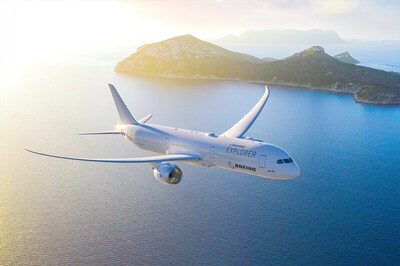
Boeing, the world’s leading aircraft manufacturer, is expanding its EcoDemonstrator program, aimed at promoting innovations for sustainable aviation and safety. The company announced its 2023 plans, which include testing 19 technologies on the Boeing 777 EcoDemonstrator, as well as adding “Explorer” airplanes to focus on specific technologies.
The program has been running since 2012 and has so far tested approximately 250 technologies aimed at decarbonizing aviation, improving operational efficiency, enhancing safety, and improving the passenger experience. About a third of the technologies tested have been incorporated into Boeing’s products and services.
Boeing’s CEO, Stan Deal, said that the company is expanding the EcoDemonstrator program with Explorer airplanes to test even more sustainability-focused technologies to support the industry’s goal of achieving net-zero carbon emissions by 2050.
Boeing’s Chief Sustainability Officer, Chris Raymond, said that the aviation industry will need to continue with fleet renewal, efficiency gains, renewable energy carriers, such as sustainable aviation fuel, and advanced technology to achieve the industry’s commitment of net-zero carbon emissions by 2050.
The first EcoDemonstrator Explorer airplane, a 787-10 Dreamliner, will begin flight tests in June 2023, flying from Seattle to Tokyo, Singapore, and Bangkok, to demonstrate how coordinating navigation across global airspace jurisdictions can improve operational efficiency, which can reduce an airplane’s fuel use and emissions by up to 10%.
Boeing will partner with air navigation service providers in the U.S., Japan, Singapore, and Thailand to sequence the airplane’s routes to achieve the optimal flight path across multiple regions, factoring in conditions such as weather, air traffic, and airspace closures. The airplane will fly on the highest available blend of sustainable aviation fuel (SAF) at each location.
In 2023, Boeing will also use its current flagship EcoDemonstrator airplane, a 777-200ER, to test 19 technologies, including sustainable wall panels, a fiber optic fuel quantity sensor compatible with 100% SAF, and an Electronic Flight Bag application featuring Smart Airport Maps, a component of Jeppesen FliteDeck Pro. The company will fly on the highest available blend of SAF locally for all flight tests.
Boeing’s goal is to support the aviation industry’s commitment to achieving net-zero carbon emissions by 2050. The company has invested in innovation aimed at reducing fuel use, emissions, and noise on its products and has partnered with governments and industries to make progress on sustainability during each phase of flight.
The aviation industry has committed to achieving net-zero carbon emissions by 2050 to address the growing concerns about climate change. Aircraft are responsible for about 2% of global greenhouse gas emissions, and the industry has been under pressure to reduce its carbon footprint. Sustainable aviation fuel is seen as one of the most viable solutions to achieve this goal. It is a cleaner alternative to conventional jet fuel and can reduce emissions by up to 80%.









